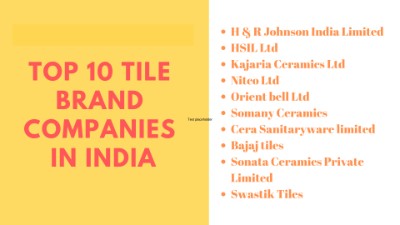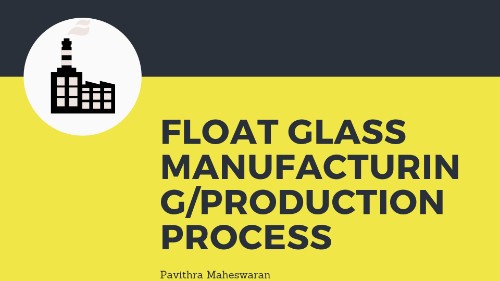The glass is a transparent material and brittle in nature. There are various types of glass used for different purposes. Significant properties and applications of these glasses are discussed in detail in this article.
COMMERCIAL GLASS
The commercial glass is a glass which can withstand powerful chemicals.
- The glass usually comes in two forms:
- Heat soaked glass- can withstand weather, temperature and scratching. It is widely popular
- Self-cleaning glass- slightly more expensive. Cleans dust particles which is present on the glass by natural elements like rain and UV rays.
The commercial glass is further classified into three types. They are as follows:
- Borosilicate glass
- Soda lime glass
- Silica glass
1BOROSILICATE GLASS
Borosilicate glass is a glass which contains at least 5% boric acid. It is also known as Type-I glass and Pyrex.
Properties
- Resistance to glass at high temperatures and also improves the resistance to chemical corrosion.
- High hydrolytic resistance due to the chemical composition of the glass.
- Better thermal shock resistance
- Chemical durability
- Higher electrical resistivity.
Applications
- Used in laboratory glassware as beakers, test tubes and conical flask.
Composition of some common commercial Borosilicate Glasses
| Component
(Wt %) | CGW – 7740
(labware) | CGW-7070
(electrical) | Cgw-7059
(substrate) | CGW – 7052
(sealing) |
| Sio2 | 81 | 72 | 49 | 64 |
| Li2o | – | 0.5 | – | 1 |
| Na2o | 4 | 0.5 | – | 2 |
| K2o | – | 1 | – | 3 |
| BaO | – | – | 25 | 3 |
| Al2o3 | 2 | 1 | 10 | 8 |
| B2o3 | 13 | 25 | 15 | 19 |
2SODA LIME GLASS
Tempered soda lime glass/ soda -lime glass(untreated)/ soda-lime-silica, the most prevalent type of glass. It is inexpensive and also known as Type-III glass.
Properties
- High mechanical strength
- High thermal shock resistance
- Chemically stable
- Hard
Applications
- Used in windows (flat glass) and containers(container glass)
- Used for glass recycling.
- Commonly used for beverages, food and pharmaceutical preparations.
Type –III glass is not suitable for autoclaved products. Why?
Autoclaving process will accelerate the glass corrosion reaction. Hence, Type-III glass/soda lime silica glass/ soda-lime-silica glass is not suitable for the autoclaved process.
3SILICA GLASS
Silica glass is a very thin and transparent glass. It is also called as fused quartz.
Properties
- Can withstand high temperatures
- High chemical durability
- High thermal shock resistance
- Low coefficient of thermal expansion
- Very low electrical conductivity
Applications
- Used in semiconductor fabrication furnaces
- Used in a telescope as surface mirrors
Here we will discuss the special types of glass in detail.
Special Glas
4ALKALI-BARIUM SILICATE GLASS
Alkali barium silicate glass is a type of special glass.
Advantage
- To protect our eyes from harmful X-rays
- No long-term health issues
Applications
- Alkali barium silicate glass is used in television screens.
5ALUMINOSILICATE GLASS
Aluminosilicate glass exists in a wide variety of glass. It contains at least 5% of aluminium oxide.
Properties
- Better chemical resistance
- Withstand high temperature
Applications
- Used in space shuttles, windows, gauges and thermometers
Aluminosilicate glass is categorised into two groups.
- Alkaline earth aluminosilicate glasses
Properties
- High transformation temperature
- High softening points
Applications
- Used in halogen lamps, thermometers and thermal & electrical resistors.
- Alkali aluminosilicate glasses
Properties
- High compressive strength
- High transformation temperature
- Outstanding mechanical properties
Applications
- Used in touch displays and solar cell cover glass
6GLASS CERAMICS
Ceramic glass is a glass in which the glass is reheated and crystallised
Properties
- Uniform size and uniform crystals
- The high density of crystalline nuclei (To achieve this, add titania, zirconia and phosphorous pentoxide)
Applications
- Used in stovetops and glass utensils.
- Used in dental prostheses
7OPTICAL GLASS
Optical glass is a special product, and this glass is hard to manufacture. This type of glass is also known as crown glass.
Properties
- Low refractive index
- Low dispersion.
Applications
- Used in lenses
- Telescopes
8SEALING GLASS
Sealing glass is a glass which is easy to break and manufacture.
Properties
- Capable of wetting
- Thermal expansion of glass must be carefully matched to the seal.
Applications
- Used in bulbs and tube lights
9TECHNICAL GLASS
Properties
- High strength and high ductility
- High durability
- Good thermal shock resistance
- Chemical durability
Technical is subdivided into four categories as follows and its applications.
- Borate glass – used in the screen of a computer
- Passivation glass- used as silicon chips in the computer
- Phosphate glass – used in electron multipliers
- Chalcogenide glass – used in computers
10VITREOUS GLASS
The vitreous glass is a glass which is produced at lower temperatures
Properties
- Opaque
- The low thermal expansion coefficient
Applications
- Used in artworks
CONSTRUCTION GLASS
Construction glass is a glass which can be used in building appliances.
11FLOAT GLASS
Float glass is made of sodium silicate and calcium silicate
Properties
- High density (2500 Kg/m3)
- High refractive index
- Low melting temperature
- Good optical clarity
Applications
- Used in modern windows
12SHATTERPROOF GLASS
The shatterproof glass is a glass which made with resin or plates of plastic. It is also known as bulletproof glass
Properties
- Not form sharp edges when broken
Applications
- Used in windows required high security
- Used in jewellery, military as well as private vehicle
- Used in skylight, flooring
13LAMINATED GLASS
Laminated glass consists of the plastic interlayer in which provides a plastic-like structure
Properties
- High temperature
- Flat and clear
- Minimize breaking
Applications
- Used in front doors and windscreens
- Used in bridges, floors and aquariums
14EXTRA CLEAN GLASS
The extra clean glass is a glass which can be maintained easily
Properties
- Photocatalytic
- Hydrophilic
- Acts as stain proof due to above said properties
Applications
- Used for decoration purposes.
15CHROMATIC GLASS
The chromatic glass is a colour vision tool for the person who difficult in recognising specific colours. It can be in three forms:
- Photochromatic
- Thermochromatic
- Electro chromatic
Properties
- Control transparent efficiency
Applications
- Used in meeting rooms and ICUs
16TINTED GLASS
Tinted glass is a glass in which some addition of colours to glass batch mix.
For example, Iron oxide gives green colour and sulphur provides the blue colour
Properties
- Heat and light transmission
- Ultraviolet transmission
Applications
- Used in transparent surfaces to provide decoration
17TOUGHENED GLASS
Toughened glass is a type of safety glass. It is also known as tempered glass.
Properties
- Increasing strength by controlled thermal and chemical treatments
- No internal stress
Applications
- Used in passengers window vehicles
- Used in swimming pools and computer towers
18GLASS BRICKS
Glass brick is an architectural element made from glass. It is also known as the glass block.
Properties
- Durability
- Extremely resistant
- Good thermal and sound insulation
Applications
- Used in windows, walls and non-load bearing walls
Other Types of Glass
Now we will see other types of glass.
19Fibre GLASS
Fibreglass is a glass which is lightweight and robust reinforcement.
Properties
- Good electrical insulator
- Low thermal conductivity
- Low coefficient of linear expansion
- Fire resistance
- Chemical resistance
- Corrosion resistance
- Cracking resistance
Applications
- Chemical industry
- Cooling towers
- Car washes
- Beverage industry
20LEAD GLASS
Lead glass is a glass which is made up of toxic material. It is commonly called as crystal.
Properties
- The high atomic weight of 207.2 g/mol
- High electrical resistance (PbO content of 20-22 wt%)
- High refractive index (1.7- 1.8)
- Density up to 3.1 g/cm3 and for high lead glass 4.0 g/cm3 or it can be even up to 5.9 g/cm3
- Good X-Ray shielding properties
- Low-temperature sealing
- Shiny appearance
- Decorative and designing purposes
Applications
- Ornaments and jewellery
- Optical lenses
- Enamel
- Glass sealants
- Drinking glasses
- Prisms
- Decanters
21PHOSPHATE GLASS
Phosphate glass is a glass which comes under the class of optical glasses.
Properties
- High resistance to hydrofluoric acid
- Act as an efficient heat absorber due to the addition of iron oxide
- Some of this type of glass are soluble in water and biocompatible
- Low glass transition temperature of 365o C
- Lower thermal conductivity
- Lower optical damage
Applications
- Bone transplantation
- Optical glasses
22GORILLA GLASS
Gorilla glass is a type of float glass. The chemicals used in gorilla glass are aluminium oxide, calcium oxide and magnesium oxide. The shape is flat and thickness up to 8mm.
Properties
- Thin scratch and shock resistant glass
- Strong and compatible
- Highly durable
- Lightweight
Applications
- Cell phones to protect the screen.
23TREATED SODA LIME GLASS
Treated soda lime glass is a modified type of soda lime glass (untreated). It is also known as Type-II glass.
Properties
- High hydrolytic resistance
- Low melting point
Applications
- Suitable for both acidic and neutral aqueous preparations.
24FROSTED GLASS
Frosted glass is a glass produced by sandblasting technique or by using etching on the surface of acid.
Properties
- Translucent or semi-opaque(the view is not clear )
Applications
- Decorative patterns
- Light bulbs
- Windows
25ALKALI BOROSILICATE GLASS
Alkali borosilicate glass is a hard glass which is used widely
Properties
- High reliability
- High structural strength
- Temperature stability
- Highly insulated in electrics
Applications
- As a sealing in chemical, optical and electronic industries.
- X-Ray tubes and transmitting tubes.
26XENA GLASS
Xena glass is the best form of glass, and it is composed of zinc and barium borosilicate.
Properties
- Soft
- Good quality
Applications
- Containers for chemicals
- Scientific purposes (equipment)
27ZERODUR
Zerodur is a lithium aluminosilicate glass comes under glass ceramics.
Properties
- Low coefficient of thermal expansion
- Good chemical stability
Applications
- Laser optics
- Space technology
- X-Ray telescopes
28FLUOROSILICATE GLASS
The fluorosilicate glass is a glass material. As the name suggests it is made up of fluorine, silicon and oxygen.
Properties
- Low dielectric constant
- Good mechanical and chemical properties
Applications
- Integrated circuit fabrication
- Manufacturing of semiconductor fabrication
29BULLETPROOF GLASS
Bulletproof glass is a glass made of multiple layers of materials.
Properties
- Resistance to breakage
- Resistant windows in vehicles
- Highly durable and thicker
Applications
- Banks
- Hospitals
- Military vehicles
- Police stations
30GLASS WOOL
Glass wool is a fibrous material which is made from melted glass raw materials and broken pieces of glass(cullet)
Properties
- Air trapping property
- Non-combustible
- Good water resistance
- Good acoustic performance
Applications
- Wrap the hot water tank
- Industrial equipment
- Wall insulation
CONCLUSION
In this article, we have seen the types of glass in a detailed way. The properties and applications nearly same/ vary which is based on what types of glass.


